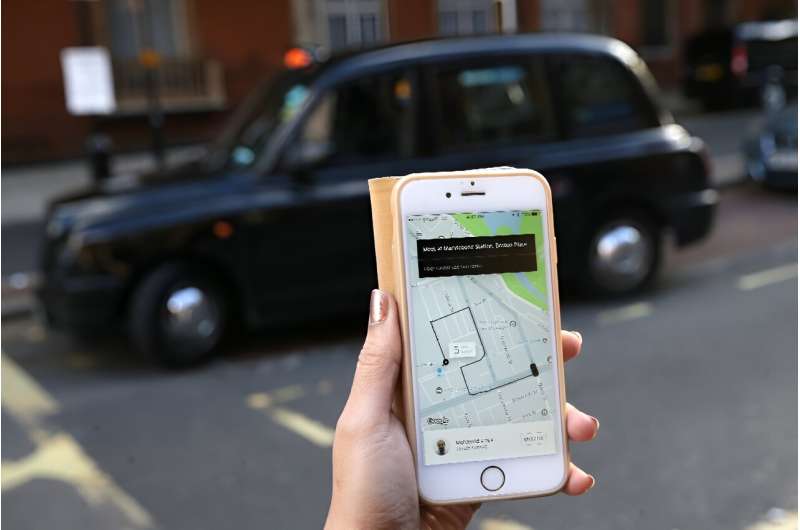
Uber is to roll out its service to London black cabs next year, it announced Wednesday, despite long-running friction between drivers of the traditional taxis and the US-based firm.
"The move opens up the Uber app to the iconic hackney carriage –- much-loved by tourists and Londoners alike and an historic part of the capital's transport network," the San Francisco-based company said in a statement.
Currently, black cabs are hailed as they drive on London's roads, but people will be able to use Uber to book them from early 2024, with drivers able to sign up to the service from Monday.
Uber launched in London over a decade ago, and has since provided over a billion trips in the UK capital.
But it has come into conflict with the traditional "cabbies", who have to memorize every street and landmark within a six-mile (10-kilometer) radius of central London in a test called "The Knowledge".
They accuse the app-based service of undermining prices, workers' rights and safety standards.
Steve McNamara, general secretary of the Licensed Taxi Drivers' Association (LTDA) which represents black cab drivers, said that there was "no demand" for the partnership.
"We are not aware of any drivers having been recruited and don't believe our members will even consider joining the app, given its well-documented poor record on everything from passenger safety to workers' rights in London.
"I can only assume that this latest effort represents a last-ditch attempt to reinvigorate their ailing business model," he added.
Thousands of drivers of black cabs have previously taken part in protests at the lack of regulations imposed on Uber, blocking London's most famous roads.
Uber's London operation has suffered previous license suspensions over safety concerns.
© 2023 AFP
Citation: Uber to partner with London's black cabs despite disputes (2023, November 29) retrieved 29 November 2023 from https://techxplore.com/news/2023-11-uber-partner-london-black-cabs.html
This document is subject to copyright. Apart from any fair dealing for the purpose of private study or research, no part may be reproduced without the written permission. The content is provided for information purposes only.
